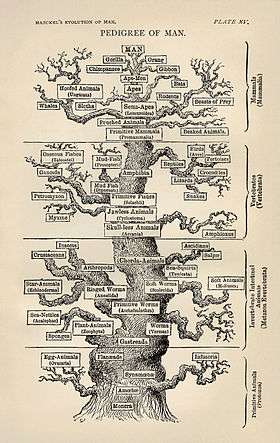Planet Simulator
The Planet Simulator (also known as a Planetary Simulator) is a machine designed to study the origin of life on planet Earth and beyond. The simulator machine was announced by researchers at McMaster University on behalf of the Origins Institute on 4 October 2018.[1][2][3][4][5][6] The machine was developed primarily to study a theory that suggests life on early Earth began in "warm little ponds", rather than in deep ocean vents, nearly four billion ago.[3] The simulator can recreate conditions of the primitive Earth to see whether cellular life can be created, and then later, evolve.[3] According to physicist Maikel Rheinstadter, who is also the director of the simulator project, "We want to understand how the first living cell was formed - how the Earth moved from a chemical world to a biological world."[2]
The one-of-a-kind planet simulator, manufactured by Angstrom Engineering Inc., can control temperature, humidity, pressure, atmosphere and radiation levels that may be consistent with conditions on the early Earth, or conditions on other astronomical bodies, including other planets, exoplanets and the like.[3] The simulator project, begun in 2012, was funded with $1 million from the Canada Foundation for Innovation, the Ontario government and McMaster University, and was built by Angstrom Engineering Inc of Kitchener, Ontario.[1][5]
Observations
According to researchers, preliminary tests with the simulator, under possible conditions of the early Earth, created protocells, not living but very important nonetheless.[3] According to biologist David Deamer, the machine is a game changer, and the cells produced so far are "significant". The "cells are not alive, but are evolutionary steps toward a living system of molecules ... [the simulator] opens up a lot of experimental activities that were literally impossible before.”[3] Based on initial tests with the new simulator technology, project director Rheinstadter stated that it "seems that the formation of life is probably a relatively frequent process in the universe".[5]
See also
References
- Balch, Erica (4 October 2018). "Ground-breaking lab poised to unlock the mystery of the origins of life on Earth and beyond". McMaster University. Retrieved 4 October 2018.
- Staff (4 October 2018). "Ground-breaking lab poised to unlock the mystery of the origins of life". EurekAlert!. Retrieved 14 October 2018.
- Casey, Liam (4 October 2018). "McMaster University researchers testing origins of life theory in new planet simulator". Global News. Retrieved 14 October 2018.
- Staff (2018). "Planet Simulator". IntraVisionGroup.com. Retrieved 14 October 2018.
- Chung, Emily (5 October 2018). "Canadian researchers use new 'planet simulator' to probe origins of life - 'Life is probably a relatively frequent process in the universe' new experiments suggests". CBC News. Retrieved 14 October 2018.
- Anderson, Paul Scott (14 October 2018). "New technology may help solve mystery of life's origins - How did life on Earth begin? A new technology, called Planet Simulator, might finally help solve the mystery". EarthSky. Retrieved 14 October 2018.
External links
- Official website at the Origins Institute of McMaster University
- Planet Simulator – video (00:43; 21 June 2018) on YouTube – Angstrom Engineering Inc
- Planet Simulator – video (616:37; LiveStream; 6 July 2018) on YouTube – McMaster University
- "Exploring Life's Origins: A Virtual Exhibit". Exploring Life's Origins: A Virtual Exhibit. Arlington County, VA: National Science Foundation. Retrieved 14 October 2018.
- "The Geochemical Origins of Life by Michael J. Russell & Allan J. Hall". Glasgow, Scotland: University of Glasgow. 13 December 2008. Archived from the original on 26 September 2019. Retrieved 14 October 2018.
- Origins of Life, BBC Radio 4 discussion with Richard Dawkins, Richard Corfield & Linda Partridge (In Our Time, 23 September 2004)
- Origins of Life and Minerals (Robert Hazen; NASA; video; 60m; April 2014).
- Malory, Marcia. "How life began on Earth". Earth Facts. Retrieved 14 October 2018.
- Art of the Wikipedia Nature Timelines

